In the 19th century, Spieloper ('opera play') was understood to mean a light opera genre, developed from Singspiel. Works typical of the genre include those by Albert Lortzing, such as Zar und Zimmermann , and Otto Nicolai's The Merry Wives of Windsor . A key difference between Spieloper and Singspiel on the one hand, and opera buffa on the other, is that the two former genres contain spoken dialogues instead of recitatives, which is why Conradin Kreutzer's Das Nachtlager in Granada and Friedrich von Flotow's Martha do not belong to this genre.
Technically, a Spieloper is an opera with a comic plot and light, pleasant music, differentiating it from more serious opera. Similarly, there are special role types such as Spieltenor or Spielbass for singers with lighter voices and the ability to act in comedies.
The Spieloper was also inspired by the French opéra comique of the late 18th century, a narrowly defined form of opera. The boundaries between Spieloper and a form of German drama "Posse mit Gesang" (melodramatic comedy with musical interludes) and operetta are not well distinguished.
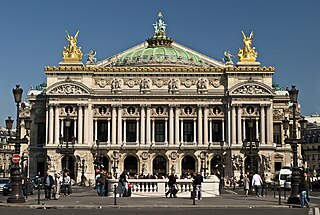
Opera is a form of theatre in which music has a leading role and the parts are taken by singers, but is distinct from musical theatre. Such a "work" is typically a collaboration between a composer and a librettist and incorporates a number of the performing arts, such as acting, scenery, costume, and sometimes dance or ballet. The performance is typically given in an opera house, accompanied by an orchestra or smaller musical ensemble, which since the early 19th century has been led by a conductor.
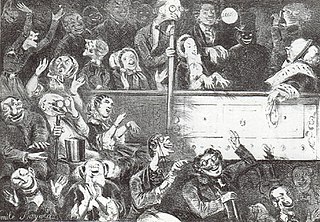
Operetta is a form of theatre and a genre of light opera. It includes spoken dialogue, songs, and dances. It is lighter than opera in terms of its music, orchestral size, length of the work, and at face value, subject matter. Apart from its shorter length, the operetta usually features a light and amusing character while making very controversial political commentaries in response to the oppressive governments and militaries that were present.
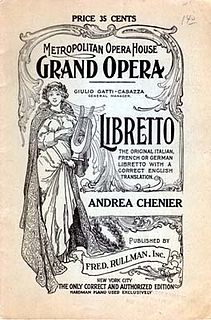
A libretto is the text used in, or intended for, an extended musical work such as an opera, operetta, masque, oratorio, cantata or musical. The term libretto is also sometimes used to refer to the text of major liturgical works, such as the Mass, requiem and sacred cantata, or the story line of a ballet.
Opera buffa is a genre of opera. It was first used as an informal description of Italian comic operas variously classified by their authors as commedia in musica, commedia per musica, dramma bernesco, dramma comico, divertimento giocoso.

Gustav Albert Lortzing was a German composer, actor and singer. He is considered to be the main representative of the German Spieloper, a form similar to the French opéra comique, which grew out of the Singspiel.

A Singspiel is a form of German-language music drama, now regarded as a genre of opera. It is characterized by spoken dialogue, which is alternated with ensembles, songs, ballads, and arias which were often strophic, or folk-like. Singspiel plots are generally comic or romantic in nature, and frequently include elements of magic, fantastical creatures, and comically exaggerated characterizations of good and evil.
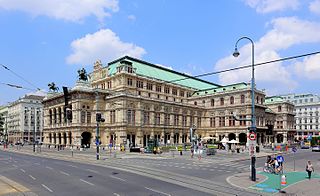
Opera in German is that of the German-speaking countries, which include Germany, Austria, and the historic German states that pre-date those countries.
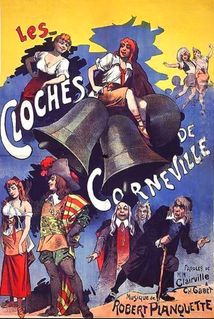
Comic opera is a sung dramatic work of a light or comic nature, usually with a happy ending and often including spoken dialogue.
Género chico is a Spanish genre of short, light plays with music. It is a major branch of zarzuela, Spain's form of popular music theatre with dialogue, and differs from zarzuela grande and most other operatic forms both in its brevity and by being aimed at audiences of a wide social spectrum.

The ballad opera is a genre of English stage entertainment that originated in the early 18th century, and continued to develop over the following century and later. Like the earlier comédie en vaudeville and the later Singspiel, its distinguishing characteristic is the use of tunes in a popular style with spoken dialogue. These English plays were 'operas' mainly insofar as they satirized the conventions of the imported opera seria. Music critic Peter Gammond describes the ballad opera as "an important step in the emancipation of both the musical stage and the popular song."
A number opera is an opera consisting of individual pieces of music ('numbers') which can be easily extracted from the larger work. They may be numbered consecutively in the score, and may be interspersed with recitative or spoken dialogue. Opera numbers may be arias, but also ensemble pieces, such as duets, trios, quartets, quintets, sextets or choruses. They may also be ballets and instrumental pieces, such as marches, sinfonias, or intermezzi. The number opera format was standard until the mid-19th century and most opera genres, including opera seria, opera buffa, opéra comique, ballad opera, Singspiel, and grand opera, were constructed in this fashion.

Rescue opera was a genre of opera in the late 18th and early 19th centuries in France and Germany. Generally, rescue operas deal with the rescue of a main character from danger and end with a happy dramatic resolution in which lofty humanistic ideals triumph over base motives. Operas with this kind of subject matter became popular in France around the time of the French Revolution; a number of such operas dealt with the rescue of a political prisoner. Stylistically and thematically, rescue opera was an outgrowth of the French bourgeois opéra comique; musically, it began a new tradition that would influence German Romantic opera and French grand opera. The most famous rescue opera is Ludwig van Beethoven's Fidelio.
Romantische Oper was a genre of early nineteenth-century German opera, developed not from the German Singspiel of the eighteenth-century but from the opéras comiques of the French Revolution. It offered opportunities for an increasingly important role for the orchestra, and greater dramatic possibilities for reminiscence motifs – phrases that are identified with a place, person or idea and which, when re-used in a work, remind the listener of the place, person or idea in question.

Der krumme Teufel, Hob. 29/1a, was Joseph Haydn's first opera. This German-language comic opera in the genre of Singspiel was commissioned by its librettist, leading comic actor Johann Joseph Felix Kurtz. It was forbidden after two acclaimed performances in Vienna due to "offensive remarks in the text", but later revived and probably revised as Der neue krumme Teufel, Hob. 29/1b. The music is lost, though a libretto survives for each version.

The comédie en vaudevilles was a theatrical entertainment which began in Paris towards the end of the 17th century, in which comedy was enlivened through lyrics using the melody of popular vaudeville songs.

Männerlist größer als Frauenlist oder Die glückliche Bärenfamilie is an unfinished Singspiel by Richard Wagner, written between 1837 and 1838.
Posse mit Gesang is a form of popular German-language music drama, that developed in the late 18th and early 19th centuries. Early examples are sometimes called 'Possenspil' or 'Possenspiel'. It is also sometimes referred to simply as 'Posse' (farce).
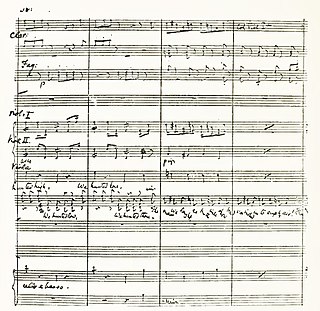
Theatre music refers to a wide range of music composed or adapted for performance in theatres. Genres of theatre music include opera, ballet and several forms of musical theatre, from pantomime to operetta and modern stage musicals and revues. Another form of theatre music is incidental music, which, as in radio, film and television, is used to accompany the action or to separate the scenes of a play. The physical embodiment of the music is called a score, which includes the music and, if there are lyrics, it also shows the lyrics.












